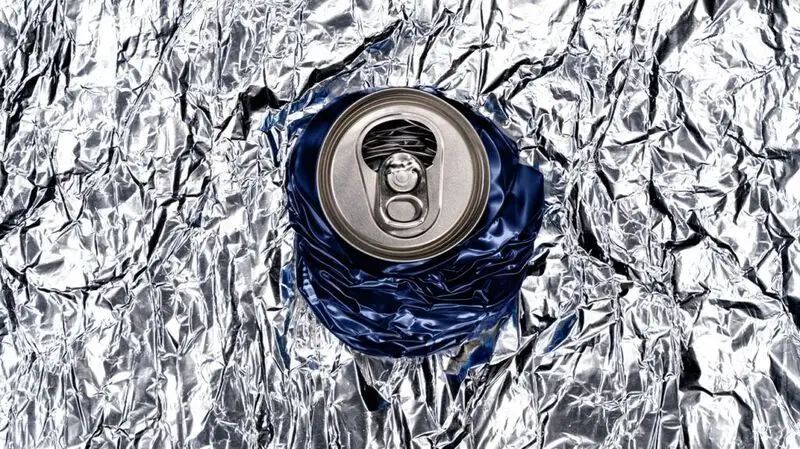
- Researchers are reporting that consuming more than two liters per week of sweetened beverages carries an increased risk of irregular heart rhythm, or atrial fibrillation.
- Drinks with artificial sweeteners also carried a higher risk than those with natural sugars.
- Consuming one liter or less of pure, unsweetened juice per week was associated with a lower risk.
- Doctors recommend limiting consumption of sweetened drinks and switching to Healthier alternatives such as water.
A new analysis might give you pause before reaching for that sweetened beverage – especially if it’s artificially sweetened.
Researchers looked at data from the U.K. Biobank, finding that frequent consumption of sweetened drinks – whether they’re naturally sweet, such as juice — or artificially sweetened, like a diet soda – carries a heightened risk of irregular heart rhythm, also known as atrial fibrillation.
Their findings were published today in Circulation: Arrhythmia and Electrophysiology, a journal of the American Heart Association.
Ningjian Wang, the lead study author and a researcher at the Shanghai Ninth People’s Hospital and Shanghai Jiao Tong University School of Medicine in China, told Medical News Today that artificially sweetened drinks carry a higher risk.
“Our study shows the consumption of more than two liters (about 67 ounces) per week of sugar-sweetened beverages is associated with a 10 percent risk of incident atrial fibrillation compared to non-consumers, independently of traditional risk factors,” Wang explained.
“The figure rises to 20 percent for people consuming more than two liters per week of artificially sweetened beverages, surpassing the risk associated with the equal amount of sugar-sweetened beverage consumption,” he added.
Wang said that he and his colleagues noticed that the Health risks of artificially sweetened beverages are
The first category was drinks with added sugar such as white sugar, sucrose, and fructose syrup – typically seen in non-diet soda and fruit juice blends.
The second category was freshly squeezed fruit juices with no added sugar. Limited intake of natural fruit juice can be beneficial. Wang noted that consumption of less than one liter per week not only provides vitamins, minerals, and antioxidants, it is also associated with an 8 percent decreased risk of atrial fibrillation. That said, researchers found no protective effect for consuming more than one liter per week of these drinks.
The third category of drinks – those with artificial sweeteners such as sucralose, aspartame, and acesulfame – are popular because these products are sweet but generally contain limited calories. However, these artificial sweetening synthetic compounds are not without risk.
Wang cautioned that the study found a correlation but not causation. That said, the findings strongly suggest that curbing consumption of sweet drinks is a smart choice.
“We encourage people to be mindful of their behavioral patterns,” Wang said. “Early detection of risk factors like an unhealthy diet and taking proactive measures can effectively reduce the burden of disease in the future.”
“Based on our study, we once again advise people to reduce or even avoid consumption of sugar-sweetened and artificially sweetened beverages whenever possible,” he said. “It is important not to assume that low-calorie artificially sweetened beverages are inherently healthy, as they also carry potential health risks.”
The new findings are in line with American Heart Association (AHA)
It’s an important reminder that controlling for risk factors is critical, especially since the risk of atrial fibrillation (A-fib) increases with age.
Nikhil Warrier, a cardiac electrophysiologist and medical director of electrophysiology at MemorialCare Heart & Vascular Institute at Orange Coast Medical Center in California who was not involved with the new research, told Medical News Today that about 2% of people younger than 65 years of age have A-fib while about 9% of people 65 and older have it.
“The most common symptom related to AFib is fatigue,” Warrier explained. “Patients also complain of palpitations or rapid or irregular heartbeat. Shortness of breath can manifest with rapid heart rates or congestive failure, which could also be related to A-fib.”
Any condition that affects heart function can be potentially serious and atrial fibrillation carries with it an increased risk of stroke. Heart failure and atrial fibrillation are also closely associated.
While some risk factors can be reduced with anticoagulant medication, A-fib is a condition that often goes unnoticed and untreated.
“Given the often paroxysmal and asymptomatic nature of atrial fibrillation, it may not be detected with the use of traditional monitoring techniques and may require prolonged rhythm monitoring,” Warrier said.
“Treatment is tailored to each individual patient and usually depends on how long they’ve had A-fib, how bothersome the symptoms are, and the underlying causes of the A-fib,” he continued. “Generally, the treatment goals are threefold: to address the risk of stroke to prevent blood clots with blood-thinning medication; to determine a rhythm or rate control strategy which can be addressed with medications or invasive options; and healthy lifestyle changes to manage risk factors.”
“Bottom line: atrial fibrillation is a heart rhythm disorder that needs to be treated whether or not you are having symptoms,” Warrier said.





